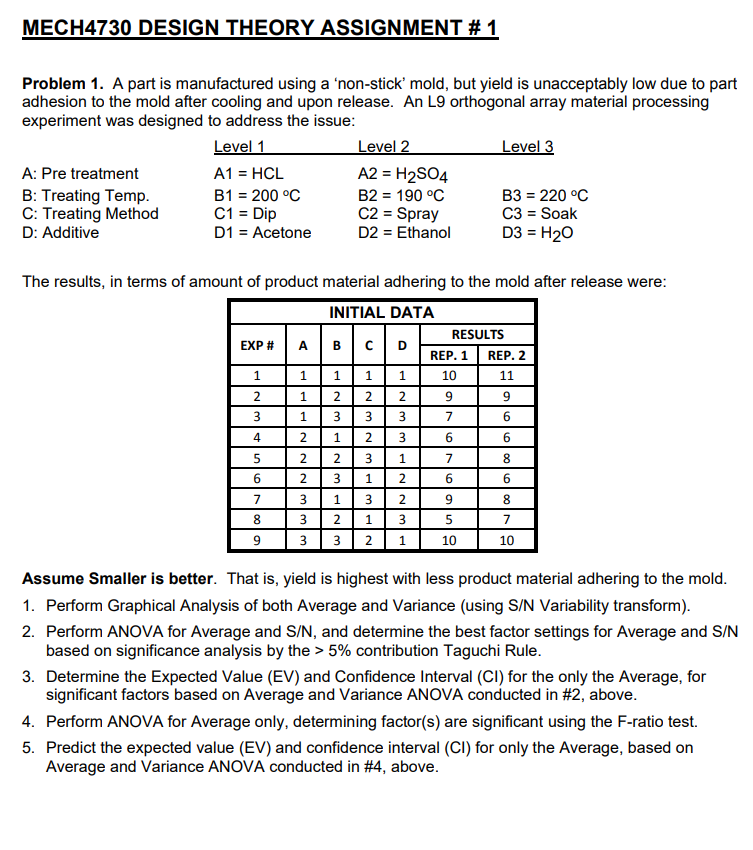Answered step by step
Verified Expert Solution
Question
1 Approved Answer
MECH4730 DESIGN THEORY ASSIGNMENT # 1 Problem 1. A part is manufactured using a 'non-stick' mold, but yield is unacceptably low due to part

MECH4730 DESIGN THEORY ASSIGNMENT # 1 Problem 1. A part is manufactured using a 'non-stick' mold, but yield is unacceptably low due to part adhesion to the mold after cooling and upon release. An L9 orthogonal array material processing experiment was designed to address the issue: A: Pre treatment B: Treating Temp. C: Treating Method D: Additive Level 1 Level 2 A1 = HCL A2 = H2SO4 B1 = 200 C C1 = Dip B2 = 190 C C2 = Spray D1 = Acetone D2 = Ethanol Level 3 B3 = 220 C C3 = Soak D3 = H2O The results, in terms of amount of product material adhering to the mold after release were: INITIAL DATA RESULTS EXP # A B C D REP. 1 REP. 2 1 1 1 1 1 10 11 2 2 3 4 5 6 7 3 3 8 3 9 3 233122 112 2313 123 22 123 2 9 9 3 7 6 6 7 8 6 6006 9 8 1 3 5 7 2 1 10 10 Assume Smaller is better. That is, yield is highest with less product material adhering to the mold. 1. Perform Graphical Analysis of both Average and Variance (using S/N Variability transform). 2. Perform ANOVA for Average and S/N, and determine the best factor settings for Average and S/N based on significance analysis by the > 5% contribution Taguchi Rule. 3. Determine the Expected Value (EV) and Confidence Interval (CI) for the only the Average, for significant factors based on Average and Variance ANOVA conducted in #2, above. 4. Perform ANOVA for Average only, determining factor(s) are significant using the F-ratio test. 5. Predict the expected value (EV) and confidence interval (CI) for only the Average, based on Average and Variance ANOVA conducted in #4, above.
Step by Step Solution
There are 3 Steps involved in it
Step: 1

Get Instant Access to Expert-Tailored Solutions
See step-by-step solutions with expert insights and AI powered tools for academic success
Step: 2

Step: 3

Ace Your Homework with AI
Get the answers you need in no time with our AI-driven, step-by-step assistance
Get Started


